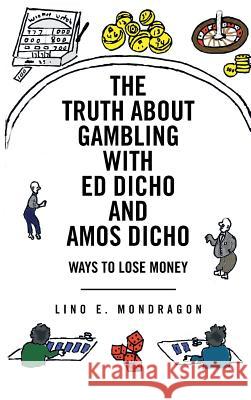The Truth about Gambling with Ed Dicho and Amos Dicho: Ways to Lose Money » książka
The Truth about Gambling with Ed Dicho and Amos Dicho: Ways to Lose Money
ISBN-13: 9781491818398 / Angielski / Twarda / 2013 / 208 str.
The Truth about Gambling with Ed Dicho and Amos Dicho: Ways to Lose Money
ISBN-13: 9781491818398 / Angielski / Twarda / 2013 / 208 str.
(netto: 121,24 VAT: 5%)
Najniższa cena z 30 dni: 126,25
ok. 16-18 dni roboczych.
Darmowa dostawa!
Man is not a born gambler but when he experiences playing the slot machines he acquires a fascination for the element chance. With all the advertising we're to believe that it's ok for the lottery to rob us blind because so much of the money is going to good causes like education. Gambling is neither an immoral nor a noble exercise it is motivated by both a desire to win big and foolishness. "During my career as a gambler I began to notice that people would win and two hours later lose it all." There are three kinds of machines - good, bad, and indifferent. The good will give you some money back, the bad will hardly pay, the indifferent are the ones that malfunctioned and you are out of luck, no money. Studies generally consider a person a problem gambler if they report at least five problems associated with gambling. Those problems range from lying about gambling and having to steal, having to borrow money, losing jobs, dumping your kid at the entrance to a casino so you can play the slots, and being unable to cut down or stop gambling. A recent report from the state task force of compulsive gambling estimates New Mexico has anywhere from 90,000 to 108,000 problem gamblers, compulsive gamblers that is. I do go to the casino at times and without a doubt it is questionable whether many of the gamblers I see playing the slots should be there at all. Compulsive gambling is like any other addiction (drinking or smoking). It is arrested only by total abstinence and cannot be cured. Compulsive gamblers live in a fantasy world that tells them the big wish is around the corner and they will be set for life, all debts will be paid, and life will be good again. As we see today, when they don't win there are disastrous effects and heartbreak that are caused by compulsive gambling every day.











